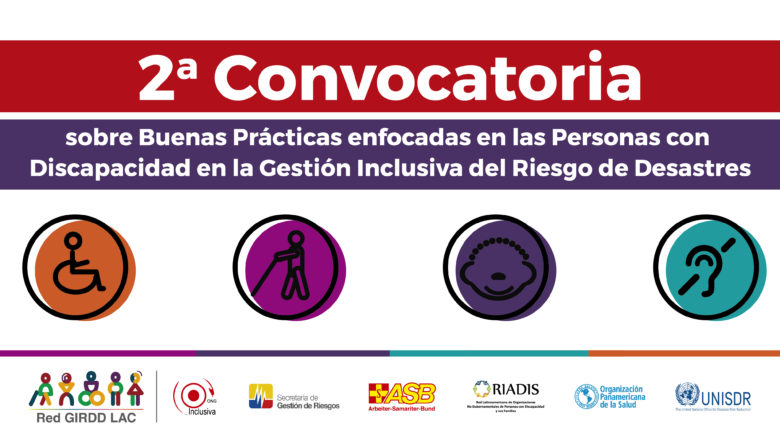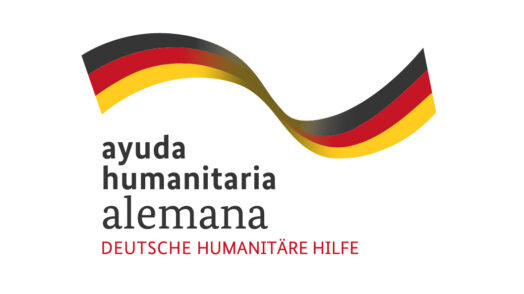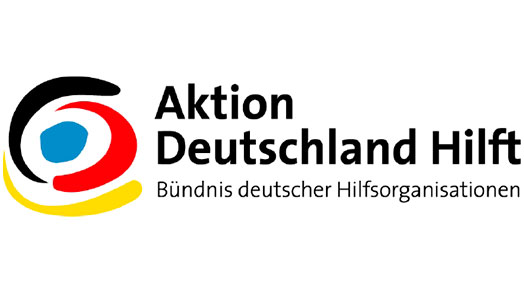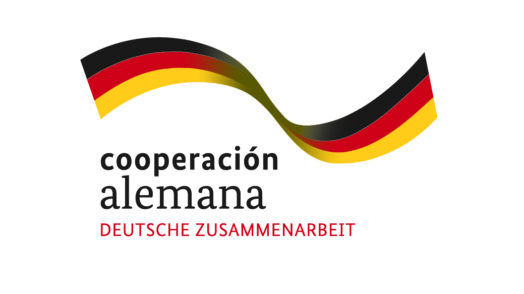
2nd Call for Best Practices on Inclusive Risk and Disability Management
We invite all individuals and representatives of the public and private sectors, civil society, academic and research centres, to participate in this call.
Context
More than one billion people, or about 15% of the world's population, live with some form of disability (World Disability Report; WHO 2011). Despite Article 11 of the Convention on the Rights of Persons with Disabilities, adopted by the United Nations in 2006, which ensures "the safety and protection of persons with disabilities in situations of risk, including situations of armed conflict, humanitarian emergencies and natural disasters," a global survey launched by UNISDR in 2013 with persons with disabilities revealed that a large disproportion of persons with disabilities still suffer and die in disasters and emergencies precisely because their needs are often not considered in risk management planning processes.
The Sendai Framework for Disaster Risk Reduction 2015-2030, adopted by United Nations Member States in March 2015 in Sendai, Japan, recognizes the importance of persons with disabilities in inclusive risk management, not only as people disproportionately affected in cases of disaster or emergency, but as agents of change with a key role in assessing disaster risk and in designing and implementing policies, plans and standards.
In 2015, the United Nations Office for Disaster Risk Reduction (UNISDR), the Technical Secretariat for Inclusive Disability Management (SETEDIS) of the Vice Presidency of the Republic of Ecuador and the NGO Inclusive, called on representatives of both the public and private levels, civil society, academic and research centers, to participate in the call for "good practices and experiences on inclusive management for disaster risk reduction with a particular focus on people with disabilities.
With the formal creation in 2017 of the Network on Inclusive Disaster Risk Management and Disability in Latin America and the Caribbean (ISDR-LAC Network), the current members of this ISDR Network make a 2nd call to expand the collection of good practices.
Approach of this 2nd call in 2017
The International Day for Disaster Reduction (IDDR) is celebrated every 13 October. Since 2016, the IDDR is framed with the Sendai 7 campaign to focus on each of the 7 goals of the Sendai Framework for the 7-year period:
- 2016 – First Goal: Significantly reduce global disaster mortality by 2030, aiming for a global average of 100,000 fewer deaths in 2020-2030 than in 2005-2015
- 2017 – Second Goal:: Significantly reduce the number of people affected globally by 2030, aiming for a global average of 100,000 fewer people in 2020-2030 than in 2005-2015;
- 2018 – Third Goal: Reducir para 2030 las pérdidas económicas directas ocasionadas por los desastres con relación al producto interno bruto (PIB) mundial;
- 2019 – Fourth Goal: Significantly reduce disaster damage to critical infrastructure and disruption of basic services, particularly education and health facilities, including by increasing their resilience by 2030 2020
- 2020 – Fifth Goal Aumentar considerablemente el número de países que cuentan con estrategias nacionales y locales para la reducción del riesgo de desastres para 2020;
- 2021 – Sixth Goal: By 2020, significantly increase the number of countries with national and local strategies for disaster risk reduction
- 2022 – Seventh Goal: Significantly increase the availability of and access to multi-hazard early warning systems, information and disaster risk assessments by 2030.
All those good practices and experiences related to disaster risk management focused on people with disabilities that meet the selection criteria mentioned here will be included in the compilation and considered for presentation at regional events such as the Regional Platform for Disaster Risk Reduction in the Americas, among others.
In addition, within the framework of the IDNDR 2017, one of the experiences could also be considered for a special mention in October due to its direct and outstanding relevance with Target 2 of the Sendai Framework which seeks to reduce the number of people affected by disasters.
Selection Criteria
The selection will be based on the following criteria:
- Thematic relevance
- General approach
- Importance
- Replicability
- Sustainability
Who can present an experience?
We invite all individuals and representatives from the public and private sectors, civil society, academic and research centres, to participate in this call for "Good practices and experiences on inclusive management for disaster risk reduction with a particular focus on people with disabilities".
Presentation of experiences
Proposals should be sent in Word format, Arial font size 11 and with a maximum length of 2 pages. Contact details should include: name(s) of contact person; the name of the organization, agency, community or initiative they represent; a contact email and phone number; and country, city or town of residence.
Each proposal must be submitted with the following data:
- Tittle of the experience
- Country or region where the experience was developed
- Which of the 7 goals of the Sendai Framework is your experience or good practice framed by its thematic relevance
- Name of the institution, agency, community or initiative that presents the experience
- Other institutions, agencies or communities related to the experience
- Name and position of contact person - Surname, first name(s)
- Telephone(s) - including country code
In your summary of good practice, please address the issue of impact in relation to the inclusion of persons with disabilities in the initiative towards disaster risk reduction.
Format for the presentation of the good practice:
- Background (what need was identified, who initiated and developed the activities/actions of the good practice and what changes or impacts were they trying to achieve)
- Description of the practice (what was done, what strategies were used, how has the initiative been unique and/or innovative)
- Implementation (how was it carried out, with whom, proportion of participants by sex and age?)
- Impacto y medios de verificación (¿cuáles fueron los resultados?, ¿qué impacto ha tenido la iniciativa y cuánto tiempo se tardó en alcanzarlo?).
- Reasons for considering it a good practice (what factors were key to success and who benefited from this practice, explain where and how it has been replicated, if at all, and how it is being sustained)
- Thematic articulation (which of the 7 goals of the Sendai Framework does the experience relate to and why?)
The deadline for submitting proposals is Monday, 10 September 2017 at 00:00 hours, Panama time (GMT-5).
Proposals should be addressed to the following two persons: Carlos Kaiser, kaiser.carlos@gmail.com; Alberto Gómez, a.gomez@asb-latam.org
Questions or inquiries related to this call, please address them to: Carlos Kaiser, kaiser.carlos@gmail.com; Alberto Gómez, a.gomez@asb-latam.org




